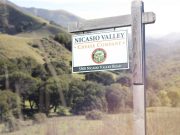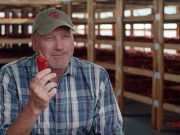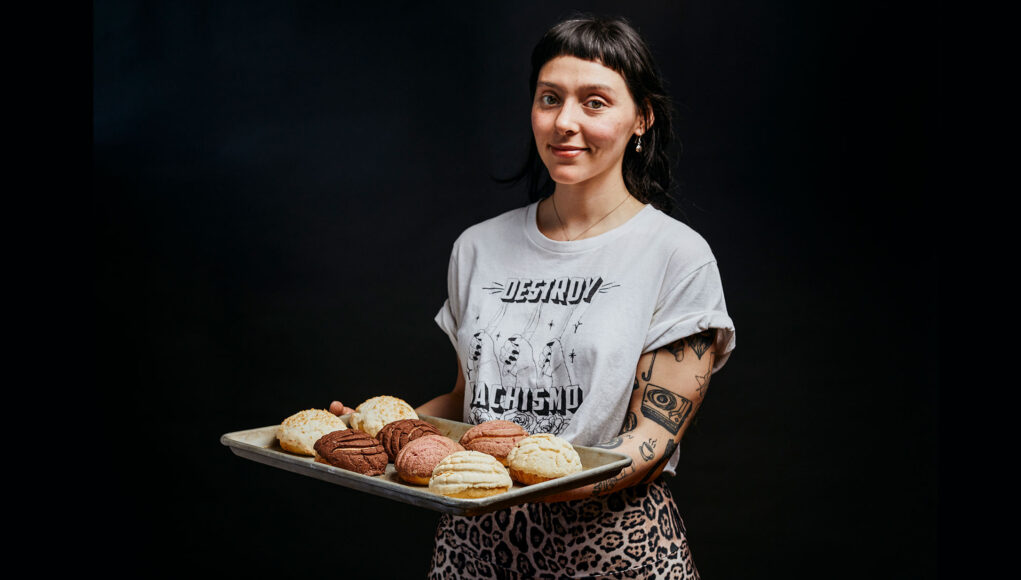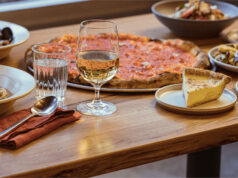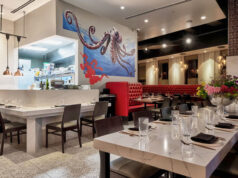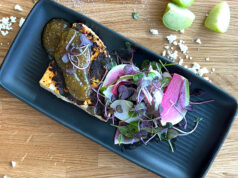Raised in San Antonio, Texas, by hard-working Mexican immigrant parents from North-Central Mexico, Comadre Panaderia Founder and Operator, Pastry Chef Mariela Camacho witnessed the stark reality of racist abuse in the workplace that both
of her parents endured.
Steadfast in her mission of raising awareness, and championing justice and nourishment for her “Latinx diaspora community,” Camacho infuses her much loved “deliciosa” creations for “Comadre” with craftswoman skill and pride in her Mexican (Xicana) identity.
Always keen to illuminate our talented chefs and pastry chefs who also utilize their “craft” as a platform for crucial causes and change, CW Magazine was thrilled to catch up with ever-busy Mariela Camacho for an interview this past fall.
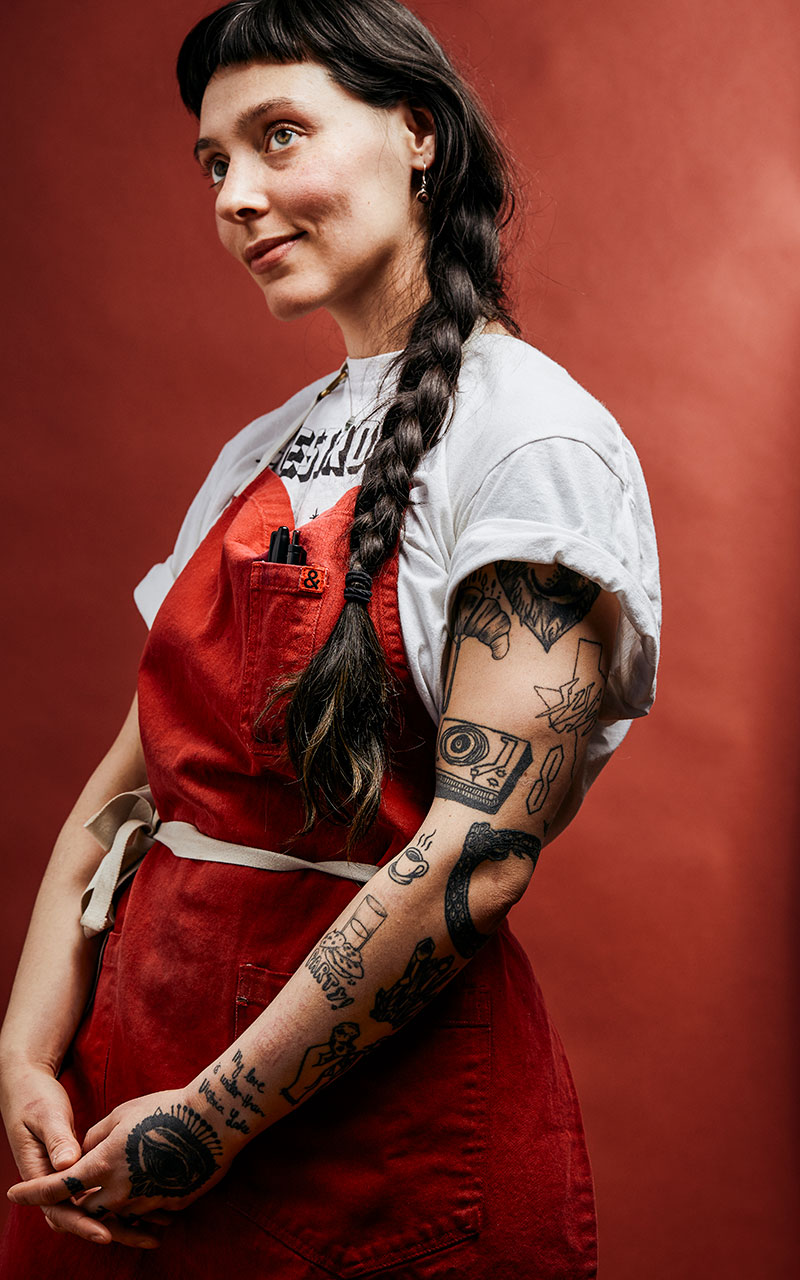 What it is to be Xicana, (Mexican American)
What it is to be Xicana, (Mexican American)
“My passion of food connects to the Xicano movement because of its association with the rights of farmworkers. There is so much history and activism behind the term Xicana and energy put into fighting for these people’s rights. I identify with this because I am a first-generation American to parents that are Mexican. Xicanos put forth a political identity that emphasizes decolonization, rejection of cultural convention, and activism over origin or language. Personally, as a person of mestizx (indigenous and European) descent from San Antonio, Texas, and as someone who stands for the liberation of oppressed people everywhere, I find that being Xicano is as simple as being me.”
The calling
“I knew I wanted to work with food from a very early age. I started baking as a way to heal from dealing with issues with my body and growing up, all of the pressures of looking a certain way. My parents were really good cooks but they worked two jobs all of the time. We didn’t really have access to a lot of healthy food. So I wanted to take that back and create delicious and healthy food as a central part of my life.”
“Comadre,” reverence between women
“I grew up in a very gossipy culture. It was one of the ways that my mom, aunt, and friends would communicate and empower each other. Gossip, of course, can also be very toxic, but I think for them it was a source of empowerment, to be able to communicate. They call each other ‘comadre.’ And that term always stuck with me. When I decided to start baking for myself I wanted a term associated with a friend, someone that’s going to have your back.”
Xicana chocolate chip cookie
“It’s a pretty American thing, chocolate chip cookies. Growing up, my dad worked at the Hilton as a cook. He would bring home these stacks of day-old chocolate chip cookies and let me eat them till I got sick!
The chocolate chip cookies we make at Comadre Panaderia are a really good representation of what I do (besides our La Concha). I get Sonora Flour from Barton Springs Mills, out in Dripping Springs, TX, which was formerly the state of Sonora, Mexico. Using these grains and flours helps me feel connected to Mexico and my heritage. I also use (puffed) amaranth, which is an ancient grain from Mexico. And I use single-origin chocolate from Peru.”
La Concha
“Our Concha is the biggest, cultural item we offer at Comadre. It’s basically brioche with sweetened dough, with a shell-shaped topping composed of sugar, butter, and flour. You can use a knife to create the classic shell design on top. When you bake it off, it cracks open and looks like a little shell.”
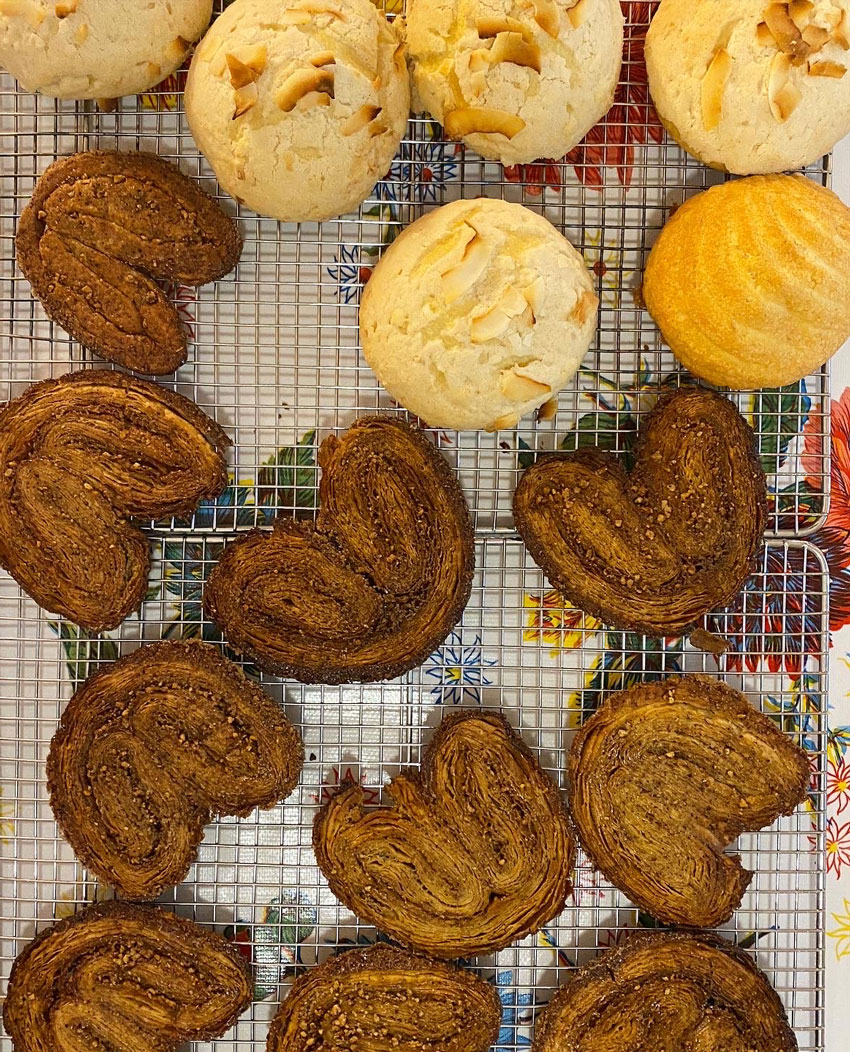 Decolonizing
Decolonizing
“I’m definitely working on educating and decolonizing myself. This extends to what I am making and all the choices that I make that are so deeply connected to just being a colonized person here in this time and place. I wish we could all have the privilege to think past the daily grind of paying our bills and feeding our family to really examine who we are and celebrate what we mean and what we bring to the world.”
Sweet tamales Christmas
“My mom got furloughed for a couple of months from work because of COVID, so she started helping me out in the kitchen. We have also started making her salsa and selling it. This Christmas I want to incorporate more of her cooking into Comadre Panaderia. We will definitely be making some of her Tamales and Sweet Tamales. The Sweet Tamales are filled with strawberry and pineapple or whatever is in a season.”
Words to the wise
“My advice is to not give so much energy working for other people. It is really powerful to do things yourself, to invest in yourself and reserve your energy for what you want to do. By believing in yourself and investing in yourself, you’re also investing in your community. You are making yourself more accessible and stronger, and
uplifting others at the same time. So much of my young career I was taken advantage of in kitchens. I was working so hard, breaking my body, so other people could make money. I don’t want people in this industry to go through that. Find a way to create something for yourself that you can be in charge of and then give it everything you have. Then it will be worth it.”
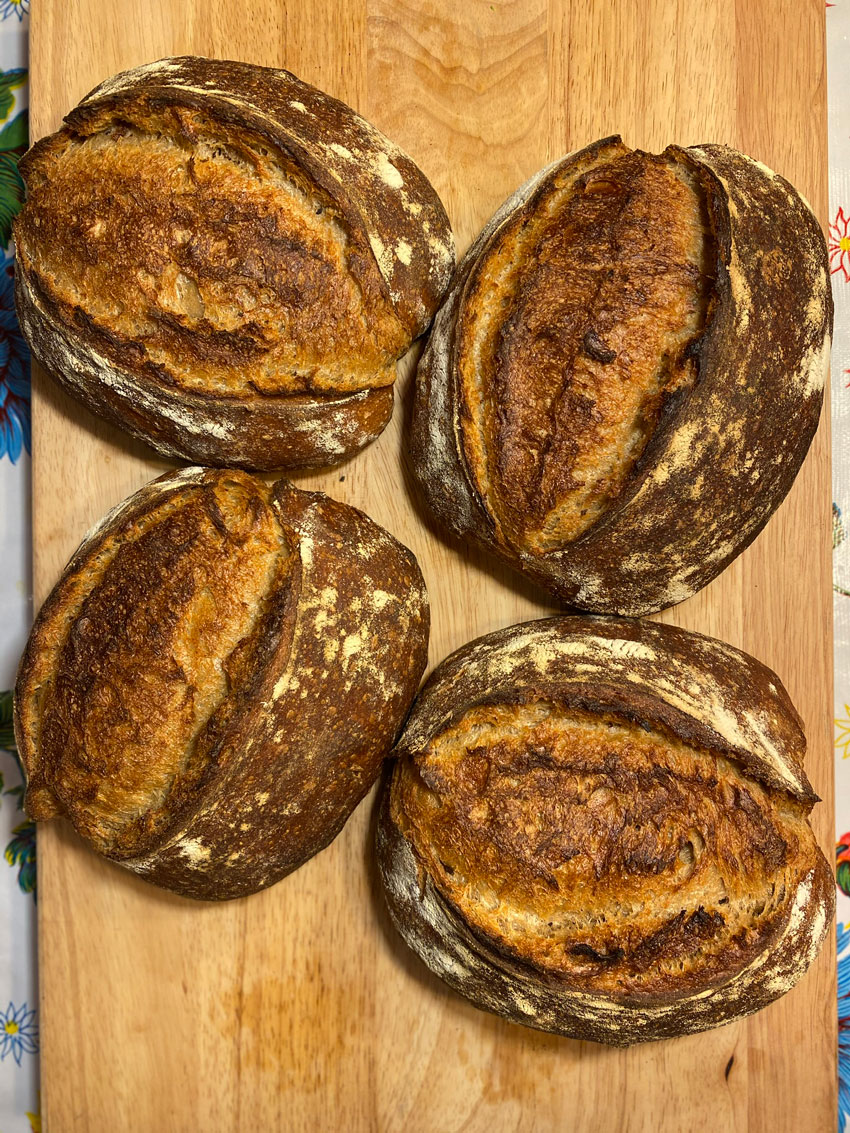 Brick and mortar future
Brick and mortar future
“I feel like I’m constantly longing for a home and space. However, having a brick and mortar place of my own just gets harder and harder. Currently, Comadre Panaderia works out of a commissary kitchen, here in San Antonio. We have done a lot of wholesale, and pop-ups here in San Antonio and in Seattle where I lived and worked for five years. In San Antonio, we pivoted towards doing the delivery. When COVID started, I’m lucky enough to have friends in San Antonio, and Austin that now allow me to set up in their shops, and people can come to pick up their orders. Every year, my goal and dream is to have a brick and mortar space that is safe and welcoming and respectful of whatever neighborhood or community we end up in. I know one day it will happen.”





